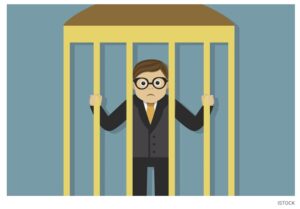 |
| I am doubtful we will have a clear decision by tomorrow. Nevertheless, as I’ve shared before, and as we discussed in our recent Teaching Matters session, it is good to have a game plan, no matter your discipline.
For a quick take, consider this resource from the CRLT at the University of Michigan: Navigating the Post-Election Period With Your Students. If |
Tidbits
Something that may be of interest
Tidbit: Finding Your Fireflies
 |
| I am not one for poetry. I am not saying this as a judgment, more as a fact. I’ve had very little exposure to poetry, probably to my detriment. So, you may find it odd that I am sharing a poem this week. It came to me via Bonni Stachowiak’s Teaching in Higher Ed podcast with John Warner. |
Tidbit: What about us?
 |
| Okay, so we’ve explored the student mental health crisis in the teaching section, but what can we do for ourselves to do more than just survive another semester? In “When Disruption Is Perpetual, It’s Time to Think Differently About Work,” Beth McMurtrie highlights strategies for professors to thrive, such as setting boundaries based on scope-of-practice framework and finding community support through learning groups. |
Tidbit: Classroom Rules
|
|
Tidbit: First Day of Class
 |
| Preparing for the first day of class, I always revisit Lang’s four key things to set the right tone: curiosity, community, learning, and course expectations. This one-page newsletter gives a brief summary as well as a link to the more comprehensive article.
I am going to be particularly vigilant this semester not just for the first day but for the first two weeks. |
Tidbit: Celebrating our graduates!

The Center for Learning and Teaching (CfLT) is excited to announce the first graduating cohort of the Denison Teaching Seminar (DTS). The cohort includes Leksa Lee from Global Commerce and East Asian Studies, Stacey Truex from Computer Science, Tim Attalah from Chemistry and Biochemistry, and Amanda Arnold from Health, Exercise, and Sport Studies. These four joined the DTS in the fall of 2021, pioneering this community of practice.
Tidbit: How to escape grading jail

Yes, it’s that time of year again. You promised yourself you wouldn’t end up here, but here you are, preparing to enter the all-too-familiar “grading jail.” As we revisit the article “How to Escape Grading Jail,” Kevin Gannon offers long-term strategies for “next time.” However, he also provides practical tips for leveraging technology to streamline our grading processes.
Tidbit: The end of the streak!
 |
It was a good run, but I am happy to announce that my students finally broke their attendance streak I mentioned in my last post. On Monday, after the break, I had 100% attendance for the first time in eight weeks, meeting four days a week. I share this news with a mix of light-heartedness and a dose of concern.
Tidbit: How’s your class attendance?
 |
| For more than a year, the issue of attendance has come up in various conversations in the Center. Students take self-described mental health days or they just don’t show up. Last year, I was on sabbatical from teaching. This year, my fall class was fine, just one chronic attendance issue who was on numerous radar screens. |
Tidbit: Teaching Information Literacy in an Age of Misinformation
 |
In the digital age, where misinformation abounds, empowering our students with robust information literacy skills has never been more critical. Dr. Krista Black’s recent article, “Teaching Information Literacy in an Age of Misinformation,” offers a compelling look into the challenges and strategies for integrating these essential skills into our curriculum. From evaluating source credibility to understanding perspectives and leveraging primary data, Dr.

